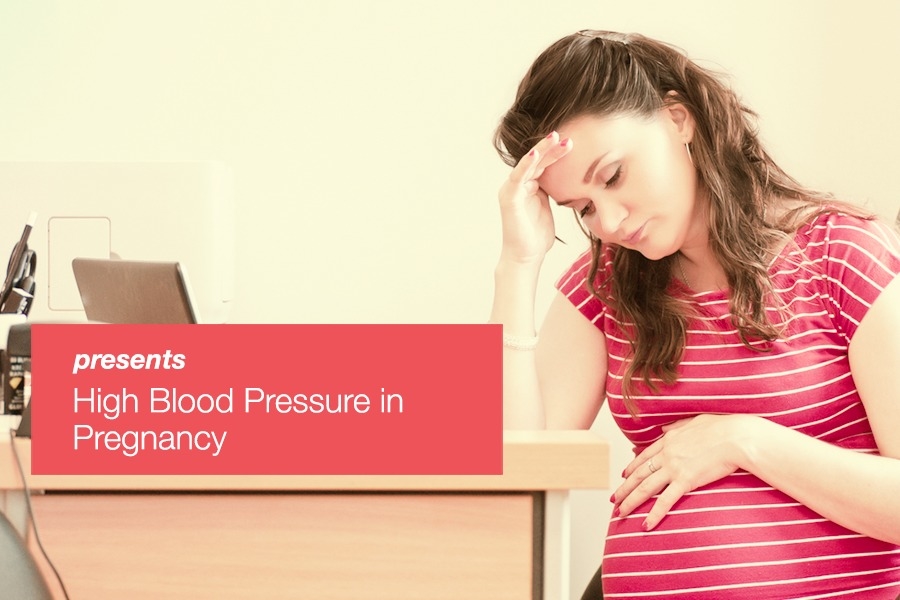
Why High Blood Pressure Can Rock Your Boat During Pregnancy!
14 Jul 2016 | 4 min Read
Dr. Ragini Agrawal
Author | 4 Articles
“In a conversation with a senior gynecologist from W Pratiksha Hospital in Gugaon, Dr Ragini Agarwal explains how and why must you steer away from High blood pressure during pregnancy.”
What causes hypertension during pregnancy? What precautions to take if a pregnant mother is diagnosed with hypertension?
A person has high blood pressure (or Hypertension) when the Systolic pressure (the top number in BP reading) is greater than 140mmHg and the diastolic pressure (the bottom number) is greater than 90mm Hg. Hypertension can lead to many health problems. During pregnancy, severe and uncontrolled hypertension can cause complications to both the mother and baby.
What causes high blood pressure in pregnancy?
- Chronic hypertension is high blood pressure (BP) that is present before pregnancy or which occurs in the first 20 weeks of pregnancy.
- Gestational hypertension is high blood pressure which occurs during the second half of pregnancy, which is after 20 weeks of pregnancy.
- Pre-eclampsia is high blood pressure after 20 weeks of pregnancy associated with proteinuria (an abnormal amount of protein in the urine). Pre-eclampsia is a serious BP- related disorder which can affect all organs of the pregnant mother.
Symptoms to watch out for: As an expecting mother, you may have severe headache, swelling over face and hands, changes in vision, vomiting, pain in upper abdomen or decrease in urine output.
You could be faced with pre-eclampsia in any of the following conditions:
- First pregnancy
- Have had pre-eclampsia in previous pregnancy or have family history of pre-eclampsia.
- Age of pregnant mother is 40 years or older.
- Having multiple pregnancy (more than 1 baby in utero)
- Having history of chronic hypertension, kidney disease or both.
- BMI indicates obesity
- Have undertaken IVF treatment
- Have medical conditions such as diabetes, thrombophilias or lupus.
Your baby in the womb may suffer from the following if you have High BP during pregnancy and it is not treated adequately:
- Inadequate growth and development
- Preterm delivery
- Placental abruption i.e. premature detachment of placenta from the wall of uterus
- Caesarean delivery
- Intra-uterine death
Hence, it is very important to watch out your blood pressure even as you are planning to conceive.
Precautions that you must take to avoid high blood pressure during pregnancy:
1. BEFORE PREGNANCY
• Keep the blood pressure under control. Reduce salt intake and exercise regularly. If BMI (Body Mass Index) is above 23, reducing weight is a key to bring your Blood Pressure within control.
• Inform your doctor if you are planning pregnancy so that he can alter your medication
2. DURING PREGNANCY
• Follow a diet which is low in salts (avoid processed foods, pickles, pappad etc.) and eat food rich in vitamin C, D and antioxidants.
• Exercise regularly. Walk and practice Yoga, if possible, and keep weight gain under control.
• Avoid alcohol and tobacco intake.
• Go for antenatal checkups with your obstetrician and make sure that Blood Pressure and urine are examined in each checkup.
Points to Remember:
- High blood pressure in the pregnant mother affects the availability of nutrients to the baby. This is because of decreased blood flow to the placenta.
- Pre-eclampsia sometimes develops without any symptoms. High blood pressure might develop gradually but more commonly it has a sudden onset. Monitoring your blood pressure is an important part of prenatal care because the first sign of preeclampsia is commonly a rise in blood pressure. Blood pressure that is 140/90 millimeters of mercury (mm Hg) or greater documented on two occasions, at least four hours apart is abnormal.
- Any medication you take during pregnancy can affect your baby. Although some medications used to lower blood pressure are considered safe during pregnancy, others such as angiotensin-converting enzyme (ACE) inhibitors, angiotensin receptor blockers (ARBs) and renin inhibitors are generally avoided during pregnancy.
Breast-feeding is encouraged for most women who have high blood pressure, even those who take medication. Discuss any medication adjustments you’ll need to make with your health care provider ahead of time. Sometimes, an alternate blood pressure medication is recommended. Your health care provider might also recommend that you avoid breast-feeding right after you take your medication.
This article is sponsored by: W Pratiksha Hospital
To consult Dr Ragini Agarwal in person, click here.
A


Suggestions offered by doctors on BabyChakra are of advisory nature i.e., for educational and informational purposes only. Content posted on, created for, or compiled by BabyChakra is not intended or designed to replace your doctor's independent judgment about any symptom, condition, or the appropriateness or risks of a procedure or treatment for a given person.
